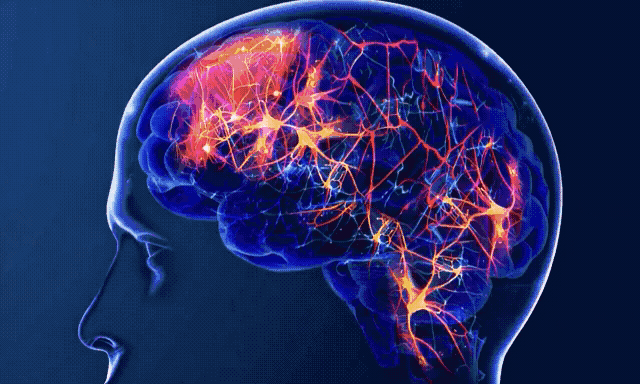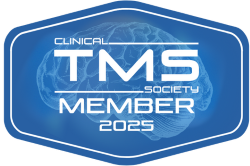Are You Burned Out or Just Drained? How to Know—and What to Do About It
August 13, 2025
When your brain feels like a dead battery

In this article, you'll discover:
- Why your brain fog isn't laziness—it's actual neural dysfunction that shows up on brain scans
- The crucial difference between being drained (fixable with rest) and burned out (requires medical intervention)
- How burnout literally shuts down your brain's control center, making simple decisions feel impossible
- Why our KIND One-Day TMS Protocol can reboot offline brain circuits and restore cognitive function
_____
Dramatic?
Here's what I didn't understand then—there's a massive difference between being drained and being burned out. And if you confuse the two, you're going to spend months trying to rest your way out of actual brain dysfunction.
Sarah starts telling me her story and I'm getting pissed. Not at her—at every doctor who probably dismissed her before she got to me. She's a software engineer, used to debug complex systems all day, could hold like twelve different variables in her head at once. Now she can't remember if she fed her cat. She's crying in her Tesla in parking lots because she can't figure out how to prioritize her task list.
"I know what I should do," she says. "I just... can't make myself do it."
That right there? That's not exhaustion. That's your prefrontal cortex going offline.
Look, when I was in medical school—which feels like a hundred years ago—they taught us about depression, anxiety, maybe ADHD if we were lucky. Nobody talked about burnout as an actual neurological condition. It was just this vague thing lazy people claimed when they didn't want to work hard.
Burnout isn't being tired. It's not even being really, really tired. It's your brain's executive control center literally shutting down. When I look at brain scans of truly burned-out patients, I see specific patterns—the dorsolateral prefrontal cortex goes quiet, the default mode network starts firing like crazy, connectivity between regions gets all messed up.
This isn't something you can positive-thinking your way out of. This is brain injury from chronic stress.
And Sarah? She's not the first. I've got a whole parade of these patients now. The emergency room nurse who started making medication errors. The lawyer who couldn't write briefs anymore. The mom who loves her kids but feels nothing when they hug her.
They all say the same thing: "I used to be good at this. What's wrong with me?"
Nothing's wrong with you. Your brain is protecting itself the only way it knows how—by going into survival mode. Problem is, you can't think clearly in survival mode.
Okay, so how do you know which one you're dealing with? Because treatment is completely different.
If you're just drained—like normal human tired—rest actually works. You take a weekend, sleep in, maybe cry a little about your life choices, and Monday you feel semi-human again. You can still get excited about things. You still laugh at your friend's terrible jokes. Your motivation comes back after some downtime.
But if you're burned out? Rest doesn't do it. You sleep ten hours and wake up feeling like you got hit by a truck. Things you used to love—your work, your hobbies, your kids—feel overwhelming or completely meaningless. Simple decisions become impossible. Like, you'll stand in front of your closet for twenty minutes because choosing what to wear requires cognitive resources you don't have.
I had this patient, Marcus, a paramedic. Guy used to make life-or-death decisions in seconds. Came to me because he spent forty-five minutes at Target trying to pick out toothpaste. Just stood there, overwhelmed by the options, almost crying.
That's not tired. That's executive dysfunction.
And it's not just mental. Your body starts falling apart too. Sarah was getting these weird digestive issues, couldn't sleep even though she was exhausted, kept getting sick. Marcus had chronic headaches, his blood pressure was climbing.
Because here's what happens when your prefrontal cortex goes dark—your whole nervous system gets stuck in fight-or-flight. Your brain can't distinguish between a real emergency and just... Tuesday. So your body stays flooded with stress hormones, your immune system takes a beating, inflammation goes through the roof.
I've seen patients develop actual autoimmune conditions from chronic burnout. Their brain literally started attacking their body because it couldn't regulate itself anymore.
This is why telling someone to "just relax" is so useless. Their brain has forgotten how.
I should probably mention—I didn't figure all this out from medical textbooks. I figured it out because I crashed too.
Yeah, me. The doctor who was supposed to have herself together. I was working eighteen-hour days, running on caffeine and stubbornness, telling myself I was fine. Until I wasn't.
I remember the moment I knew something was seriously wrong. I was sitting in my car after a patient visit, trying to remember how to get home. To my own house. Where I'd lived for three years. I just... couldn't access the information. Like my brain had deleted the file.
That's when I realized everything I'd been telling my patients about stress management was complete garbage. This wasn't about work-life balance or meditation apps. This was about my brain being broken.
So I started researching what actually happens in burned-out brains, and that's when I discovered TMS could target these specific circuits. The dorsolateral prefrontal cortex—that CEO region that goes offline—we can literally stimulate it back to life.
Our KIND One-Day TMS Protocol doesn't just treat depression or anxiety. It's brain rehabilitation. We're reactivating neural networks that have gone dormant from chronic stress.
And the results? OMG. Sarah came back three weeks after her treatment and she looked like a different person. Not manic, not artificially pumped up—just... clear. Like someone had cleaned the fog off her windshield.
"I organized my entire codebase yesterday," she told me. "For fun. I haven't wanted to organize anything in two years."
Marcus? He's back to making split-second decisions in the ambulance. No more Target meltdowns.
Look, I'm not going to lie to you. If you're truly burned out, this isn't a quick fix. Even with TMS, recovery takes time. Your brain has to remember how to function normally again.
But here's what I tell my patients: burnout isn't your fault, and it's not permanent.
Your brain wants to heal. It's designed for neuroplasticity. Sometimes it just needs the right kind of jump-start.
The traditional medical system is bad at treating this because we're trained to look for diseases we can label and medicate. Burnout falls through the cracks. It's "just stress" or "maybe depression."
But when someone tells me they used to be sharp and now they feel like they're thinking through molasses? When they say they can't feel joy or make decisions or remember conversations? That's not depression. That's brain dysfunction. And we can fix brain dysfunction.
If you're reading this and recognizing yourself, first—stop feeling guilty about it. This isn't weakness. This is what happens when you override your nervous system for too long.
Second, get help. Real help. Not yoga apps or self-care Instagram posts. If you've been "tired" for more than a few months, if rest doesn't restore you, if you're starting to question your own competence—that's your brain asking for medical intervention.
At KIND TMS, we see people at every stage. Some come crawling in barely functional. Others come when they first notice their edge slipping. Both are smart. Both deserve treatment.
Because your brain is fixable. Sarah is proof. Marcus is proof. I'm proof.
We just had to stop pretending this was about willpower and start treating it like the neurological condition it actually is.

Meet the Author
Dr. Georgine Nanos, MD, MPH
Founder of Kind Health Group







